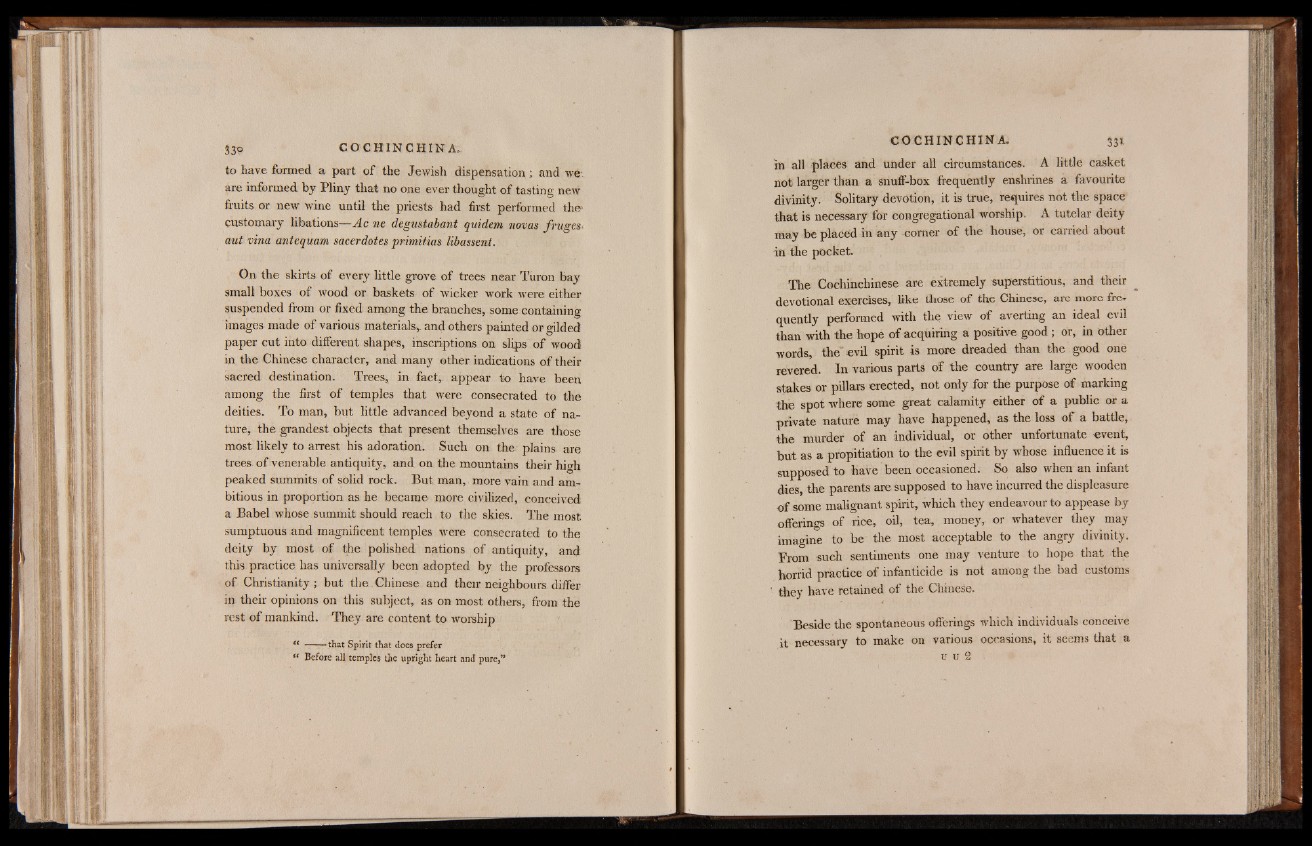
to have formed a part of the Jewish dispensation; and we
are informed by Pliny that no one ever thought of tasting new
fruits or new wine until the priests had first performed the'
customary libations—Ac ne degustabant quidem novas frnges
aut vina antequam sacerdotes primitias libassent.
On the skirts of every little grove of trees near Turon bay
small boxes of wood or baskets of wicker work were either
suspended from or fixed among the branches, some containing
images made of various materials,, and others painted or gilded
paper cut into different shapes, inscriptions on slips of wood
in the Chinese character, and many other indications of their
sacred destination. Trees, in fact,, appear to have been
among the first of temples that were consecrated to the
deities. To man, but little advanced beyond a state of nature,
the grandest objects that present themselves are those
most likely to arrest his adoration. Such on the plains are
trees of venerable antiquity, and on the _ mountains their hiQgh
peaked summits of solid rock. But man, more vain and ambitious
in proportion as he became more civilized, conceived
a Babel whose summit should reach to the skies. The most
sumptuous and magnificent temples were consecrated to the
deity by most of the polished nations of antiquity, and
this practice has universally been adopted by the professors
of Christianity ; but the . Chinese and their neighbours differ
in their opinions on this subject, as on most others, from the
rest of mankind. They are content to worship
“ —— that Spirit that does prefer
“ Before all temples the upright heart and pure,”
in all places and under all circumstances. A little casket
not larger than a snuff-box frequently enshrines a favourite
divinity. Solitary devotion, it is true, requires not the space
that is necessary for congregational worship. A tutelar deity
may be placed in any corner of the house, or carried about
in the pocket.
The Cochinchinese are extremely superstitious, and their
devotional exercises, like those of the Chinese, are more frequently
performed with the view of averting an ideal evil
than with the hope of acquiring a positive good ; or, in other
words, the“ evil spirit is more dreaded than the good one
revered. In various parts of the country are large wooden
stakes or pillars erected, not only for the purpose of marking
the spot where some great calamity either of a public or a
private nature may have happened, as the loss o f a battle,
the murder of an individual, or other unfortunate event,
but as a propitiation to the evil spirit by whose influence it is
supposed to have been occasioned. So also when an infant
dies, the parents are supposed to have incurred the displeasure
of some malignant spirit, which they endeavour to appease by
offerings of rice, oil, tea, money, or whatever they may
imagine to be the most acceptable to the angry divinity.
From such sentiments one may venture to hope that the
horrid practice of infanticide is not among the bad customs
they have retained of the Chinese.
Beside the spontaneous offerings which individuals conceive
it necessary to make on various occasions, it seems that a
u u 2